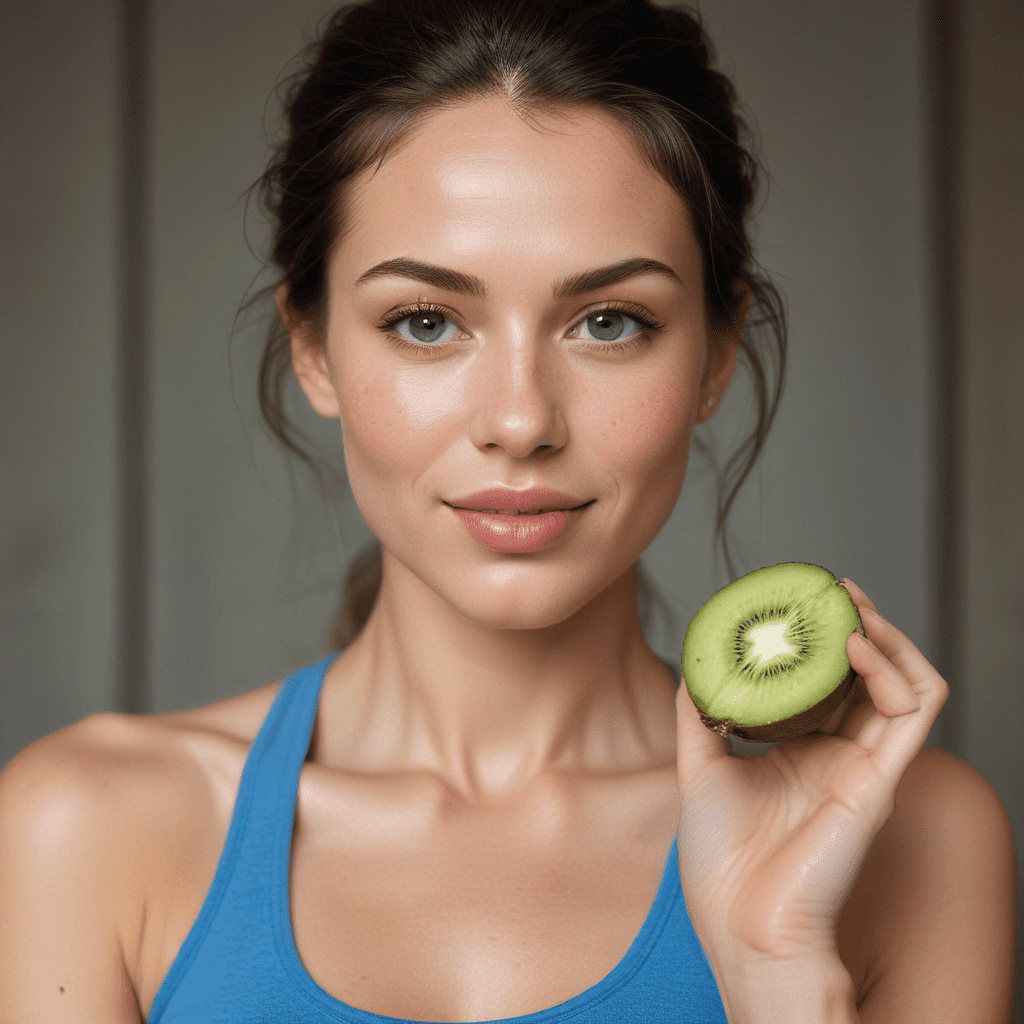
Introduction: The Positive Impact of Veganism on Skin Health
Embracing a vegan lifestyle can provide a wealth of health benefits, including a radiant and clear complexion. A vegan diet, devoid of animal products, is exceptionally rich in essential vitamins, minerals, and antioxidants, all of which play a crucial role in maintaining healthy skin. By eliminating meat and dairy, vegans limit their intake of saturated fats and inflammatory compounds, further supporting skin health.
Nutrient-Rich Vegan Foods and Their Benefits for Skin
A plant-based diet offers an abundance of nutrient-dense foods that nourish the skin from within. Fruits and vegetables, particularly those rich in vitamin C, such as berries, citrus fruits, and leafy greens, promote collagen production, enhancing skin elasticity and reducing wrinkles. Whole grains provide fiber, which aids in digestion and eliminates toxins that can contribute to skin issues. Legumes, nuts, and seeds are excellent sources of protein, iron, zinc, and other minerals essential for maintaining healthy skin cells.
Antioxidant Power: How Veganism Combats Skin Damage
Antioxidants are crucial for protecting the skin from free radical damage caused by environmental stressors like pollution and UV rays. Vegan foods are abundant in antioxidants, such as vitamin C, vitamin E, and polyphenols. These antioxidants neutralize free radicals, preventing premature aging, reducing inflammation, and protecting against skin conditions like acne and eczema.
Eliminating Inflammatory Foods: The Role of Meat and Dairy
Meat and dairy products are known to contribute to inflammation in the body. Chronic inflammation can manifest on the skin as acne, rosacea, and other inflammatory conditions. By eliminating these foods, vegans reduce systemic inflammation, which can lead to a significant improvement in skin health.
Hormonal Balance and Skin Health: The Connection and Veganism
Hormonal imbalances can impact skin health, leading to conditions like acne and hormonal pigmentation. A vegan diet can support hormonal balance by reducing the consumption of animal products, which contain hormones and growth factors that can disrupt the body's natural hormonal equilibrium. Additionally, plant-based foods, such as soy products and flaxseeds, provide phytoestrogens, which can help regulate hormonal levels.
Practical Tips for Incorporating a Vegan Diet for Improved Skin
Transitioning to a vegan diet for better skin health requires planning and preparation. Begin by incorporating more plant-based foods into your meals gradually. Choose nutrient-rich options such as fruits, vegetables, whole grains, legumes, nuts, and seeds. Consider seeking guidance from a registered dietitian for personalized advice.
The Importance of Hydration and Skin Health in a Vegan Lifestyle
Adequate hydration is vital for overall health, including skin health. Water plays a crucial role in flushing out toxins, regulating body temperature, and transporting nutrients to the skin. Aim to drink at least eight glasses of water per day. Incorporate water-rich fruits and vegetables into your diet, such as watermelon, strawberries, and cucumbers.
Vegan Skincare and Cosmetic Choices for Healthy Skin
Choosing vegan skincare and cosmetic products aligns with a vegan lifestyle and promotes skin health. Look for products free from animal-derived ingredients and harsh chemicals. Opt for cruelty-free brands that prioritize natural, plant-based ingredients. Consider DIY skincare recipes using aloe vera, green tea, or coconut oil for gentle and effective skincare.
Addressing Common Skin Concerns: Plant-Based Solutions
Veganism offers plant-based solutions to common skin concerns. For acne-prone skin, consider using tea tree oil as a natural antibacterial agent. Aloe vera gel can soothe and hydrate irritated skin, while rosehip oil may promote skin regeneration. For dry skin, try using shea butter or coconut oil as natural moisturizers.
Conclusion: Embracing the Vegan Diet for Radiant, Natural Skin
A vegan diet, rich in essential nutrients, antioxidants, and anti-inflammatory compounds, can significantly benefit skin health. By eliminating animal products, vegans improve hormonal balance and reduce skin inflammation. Adopting a vegan lifestyle requires careful planning but offers a path towards a radiant, natural complexion. Embrace the power of plants and experience the positive impact of veganism on your skin.
FAQs
1. Is a vegan diet healthy for all skin types?
A vegan diet can benefit all skin types, but it is important to ensure adequate intake of essential nutrients.
2. How long does it take to see results from a vegan diet on my skin?
Results may vary depending on individual factors, but most people experience noticeable improvements within a few weeks or months.
3. Can I go vegan if I have sensitive skin?
Yes, a vegan diet can be suitable for those with sensitive skin. Removing inflammatory foods and incorporating soothing plant-based ingredients can improve skin health.
4. Are there any vegan supplements that can support skin health?
Consider consulting a healthcare professional for personalized advice on vegan supplements that may enhance skin health, such as vitamin C, hyaluronic acid, or collagen boosters.
5. How can I make sure I'm getting enough protein on a vegan diet?
Include protein-rich plant-based foods in your diet, such as legumes, nuts, seeds, tofu, tempeh, and quinoa.

